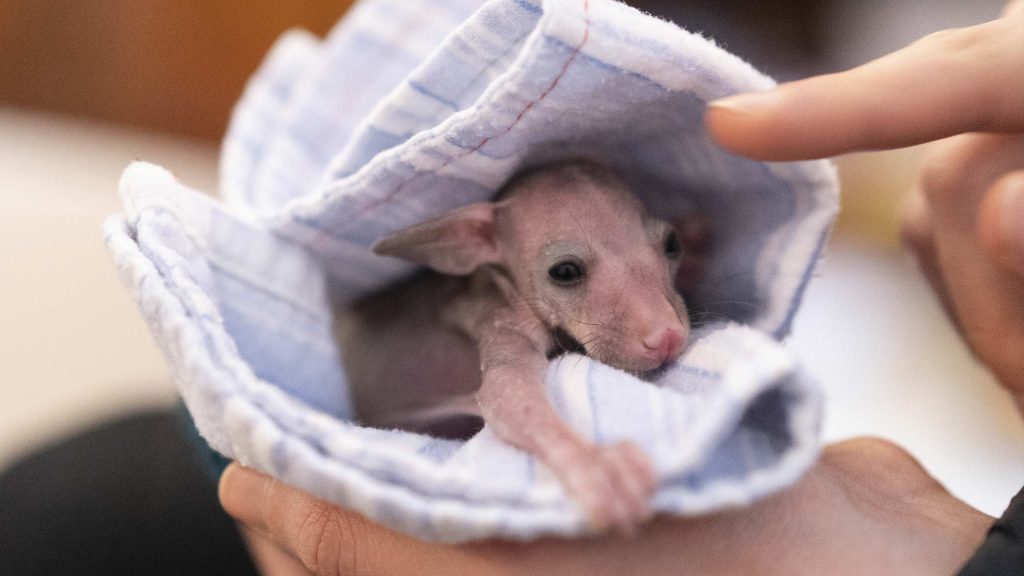ACT Wildlife – caring for the ACT’s native creatures
When the ACT’s native animals are injured, it is this group of volunteers who steps in to help
Volunteering type: wildlife care
ACT Wildlife is the only wildlife care group in the ACT that rescues, rehabilitates and releases native animals.
ACT Wildlife is not-for-profit and relies on donations and some government funding to support the work of its volunteers. In 2020, ACT Wildlife had 513 members – but the number of volunteers who take calls and care for injured wildlife is around 100. These dedicated carers contribute over 120,000 hours per year, and provide an amazing service to the ACT by caring for its wildlife. Carers may also cover the cost of animal food, accommodation, equipment, medical care and transport. Some of the veterinary care for injured animals is donated free of charge.
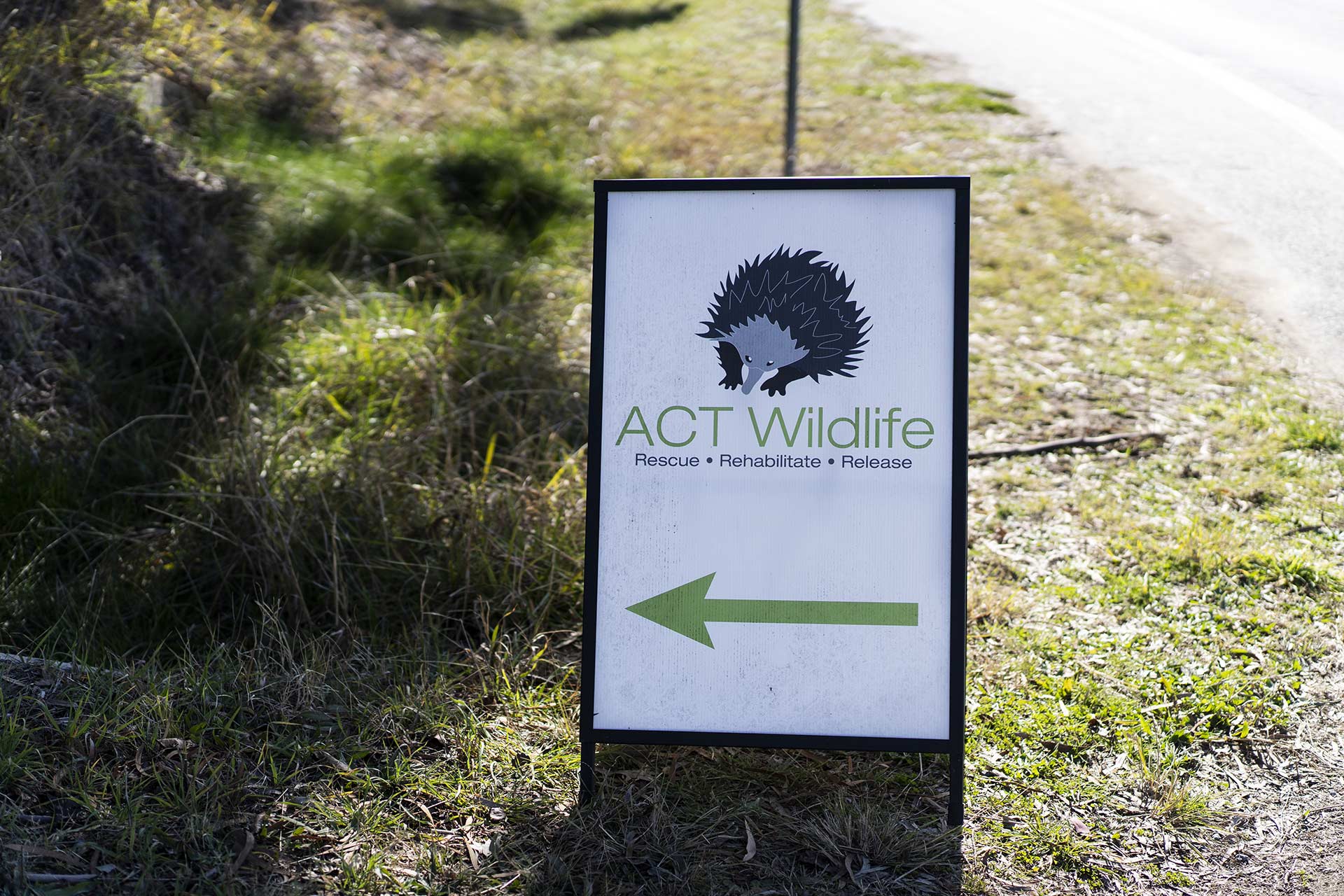
OCSE estimates that it would cost the ACT Government at least $10 million each year to replicate the services provided by ACT Wildlife.
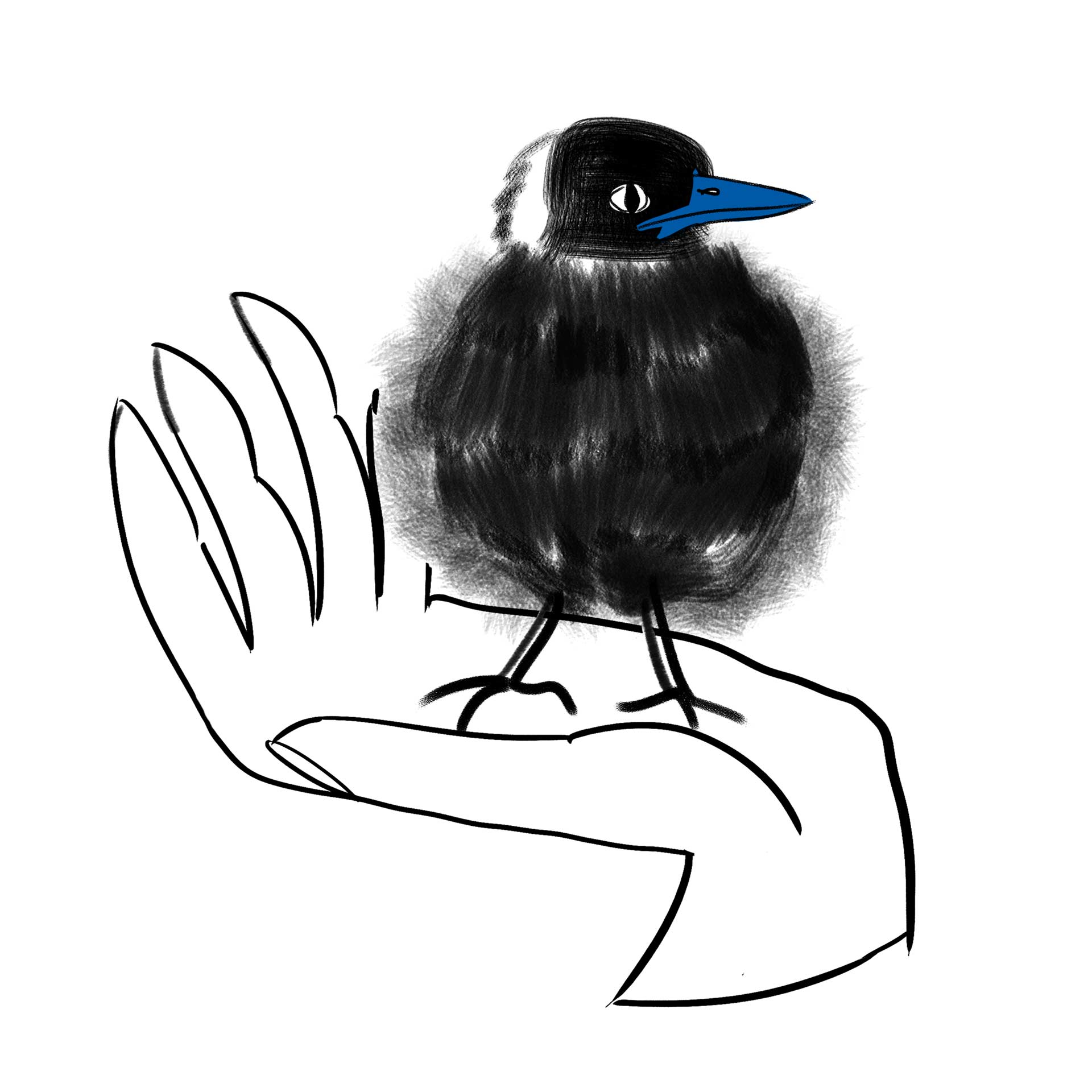
ACT Wildlife was established in 2013 by Marg Peachey, a passionate wildlife carer, as there was no native wildlife rescue and rehabilitation organisation in the ACT.
The 24/7 hotline for injured wildlife began in 2013. 12,000 calls were received in 2020, with the vast majority coming from members of the public. Around 1,500 animals come into care every year. Over ACT Wildlife employs two part-time staff, but many of calls received by the organisation are outside business hours and are taken by volunteers.
By far the most common animal that comes into care are birds. In 2020, 1,483 birds came into ACT Wildlife’s care. In 2020, birds came into care most commonly due to an attack by another animal. Birds also needed care due to collisions with cars and windows, being orphaned or falling from the nest, and uniquely to 2020, because of injury caused by hailstorms.
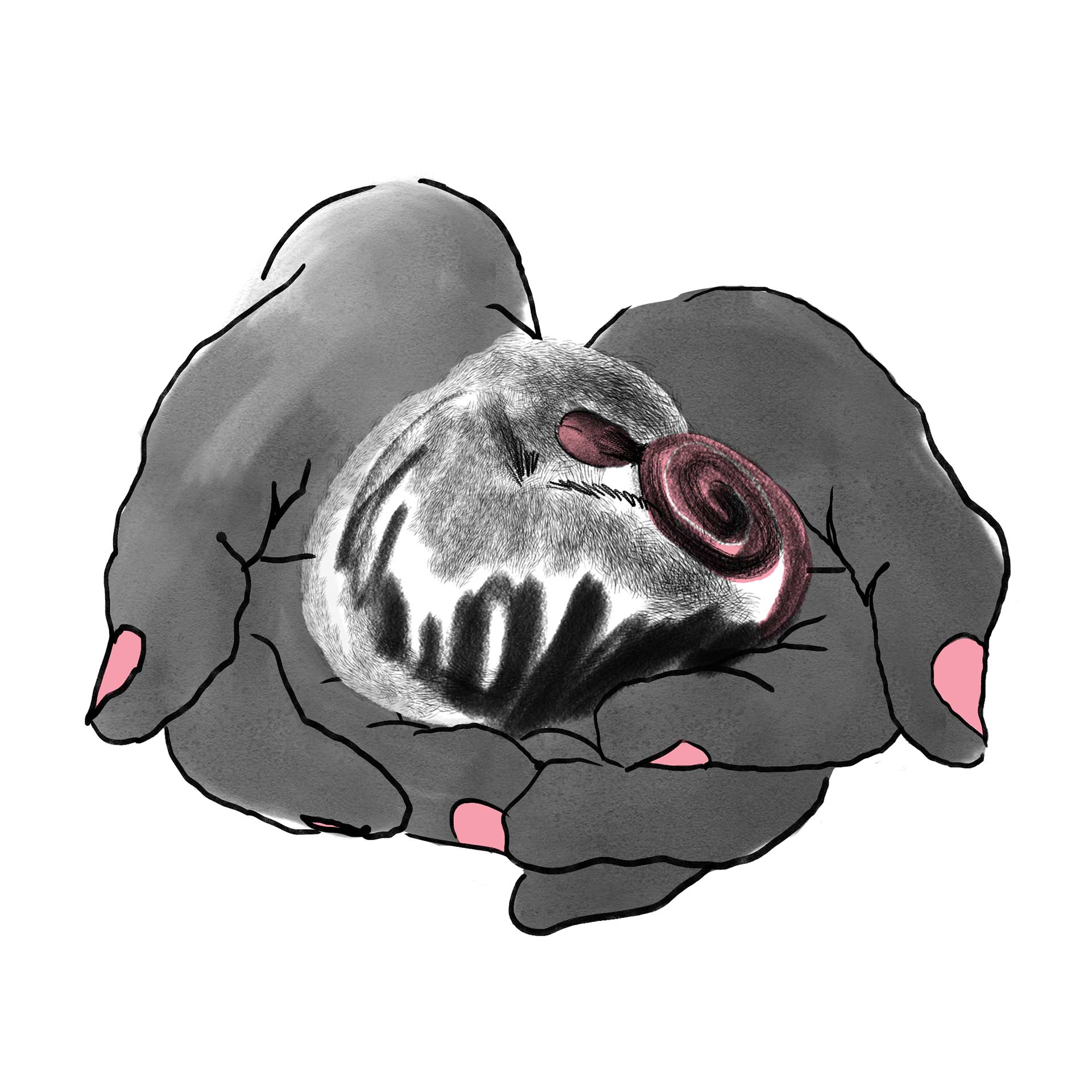
As well as birds, ACT Wildlife also received calls in 2020 regarding possums and gliders, flying foxes and bats, lizards, turtles and frogs, wallabies and kangaroos, wombats and echidnas.
Extreme weather events such as the fires, smoke pollution, heatwaves and hailstorm of 2020 have a significant impact on the number of calls received by ACT Wildlife, and the number of animals needing their care. This is unfortunately likely to increase in future as the effects of climate change become more pronounced in the ACT region.
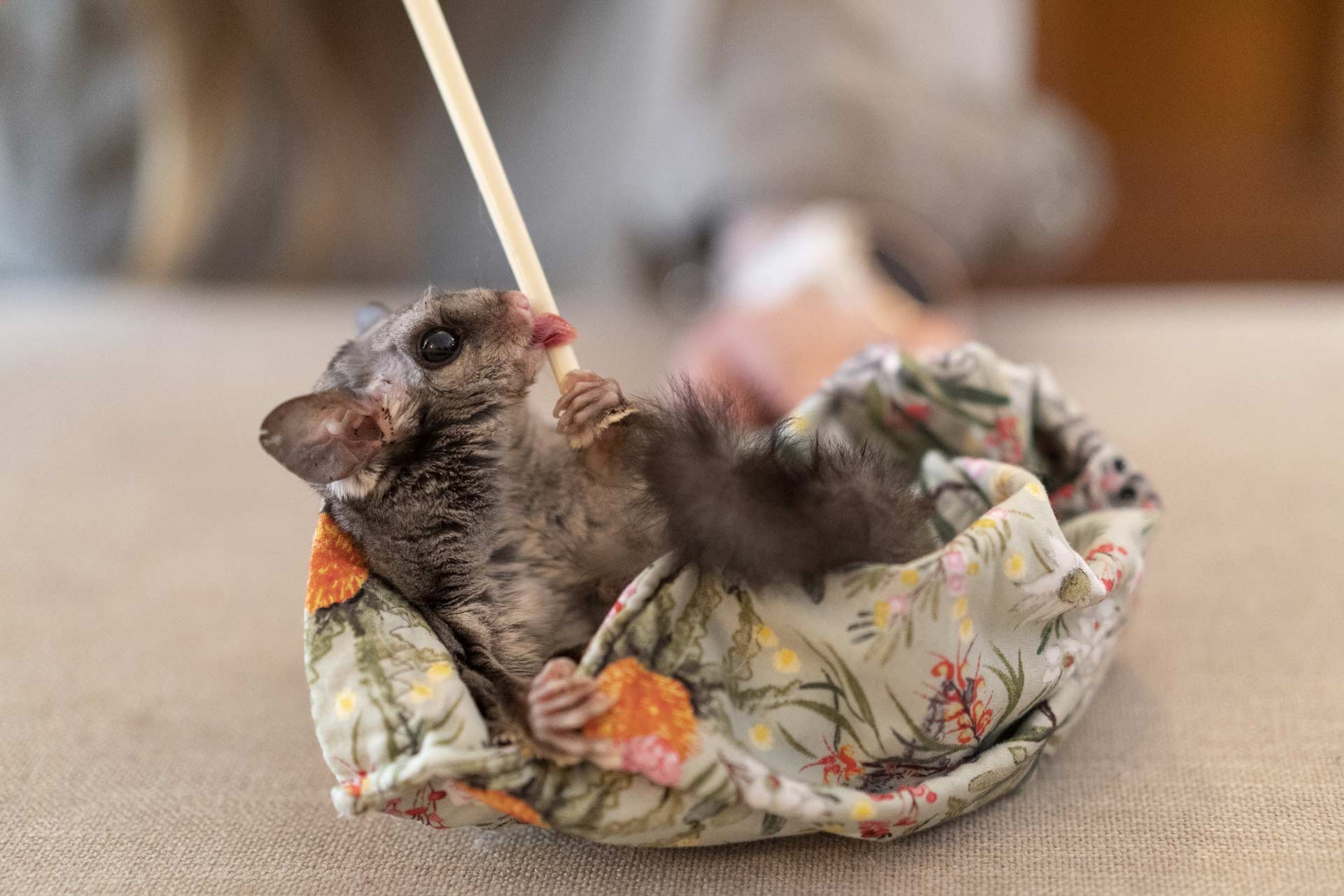
Tilly’s story
‘There’s nothing normal about Tilly’ volunteer ACT Wildlife carer Corin says, as she feeds the tiny sugar glider some honey on the end of a chopstick.
Corin is also looking after another glider, Caesar, who makes scary screechy noises when disturbed, and can’t really be handled. This is typical glider behaviour. Tilly however, is quiet, gentle and seems quite at home in her homemade pouch on Corin’s couch.
Tilly was found on Mount Ainslie by community member Elsie, who also happens to work at the Office for the Commissioner for Sustainability and the Environment. She was being attacked by a currawong and was badly injured. Elsie scooped her up and took her to the nearest vet.
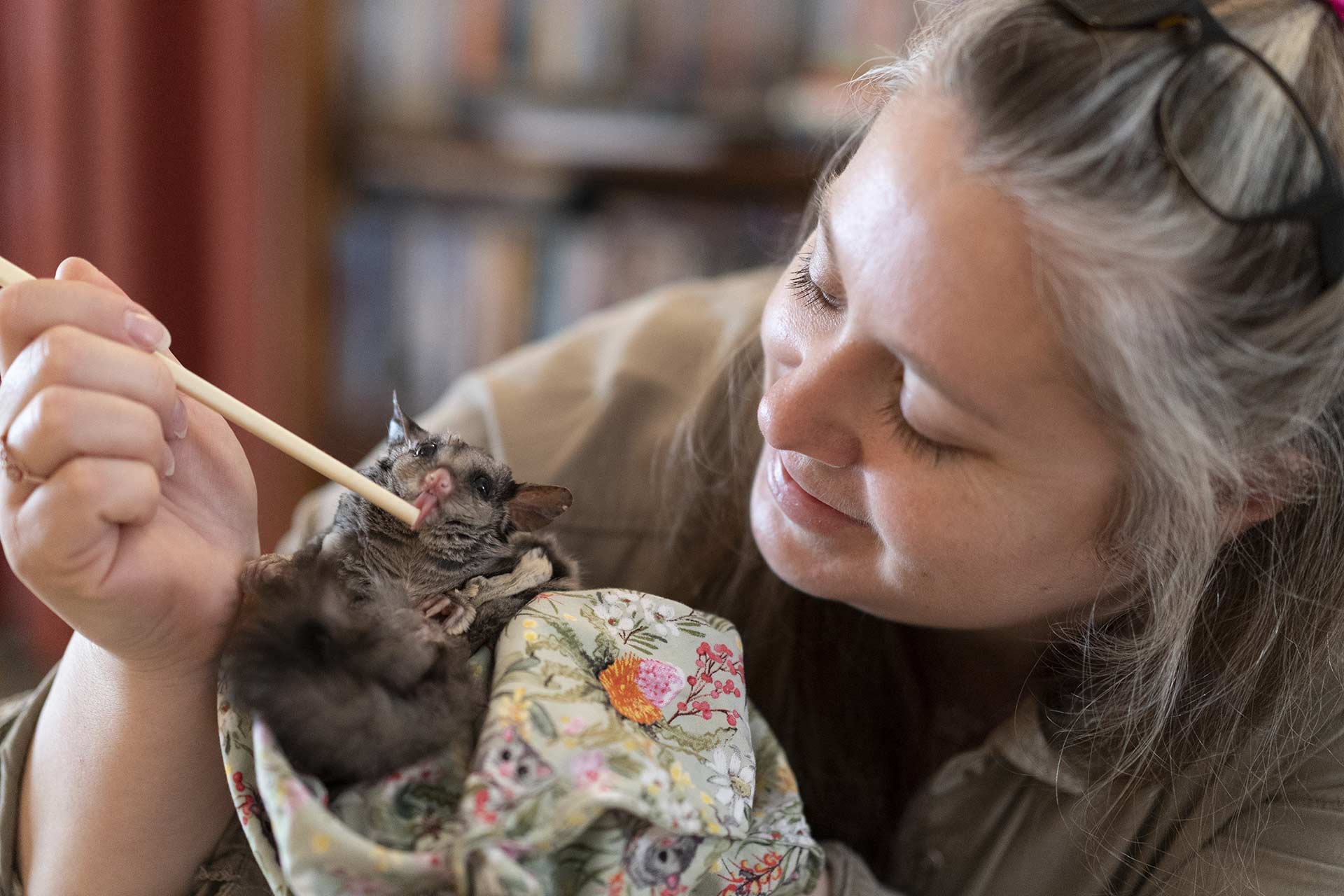
Once checked over, she was taken to Corin. Corin believes she was attacked by something else before the currawong, maybe even by her own family. Corin guesses that it might be because she’s quite old, though it’s hard to tell with gliders.
Because her injuries might be from other gliders, Corin shares that ‘She’s never going to be able to go back to her family on Mount Ainslie’. Her injuries are quite severe, and she will take a long time to heal. We’re not sure what will happen to Tilly long term, but she’s safe and cared for in the hands of Corin.
All ACT Wildlife carers are volunteers. They open their homes to all kinds of animals and care for them around the clock. Along with the two gliders, Corin is currently caring for a tiny pink baby possum, a mother possum and her baby, and has recently said goodbye to a wombat.
The contribution of carers like Corin to the Canberra community is immense. Their expertise, skills and dedication ensure the best chance of survival for Canberra’s native wildlife. Carers receive comprehensive training in animal care and are supported by other experienced carers through ACT Wildlife’s mentoring system. It certainly seems that Tilly knows what’s best for her and has settled in well to Corin’s home.

